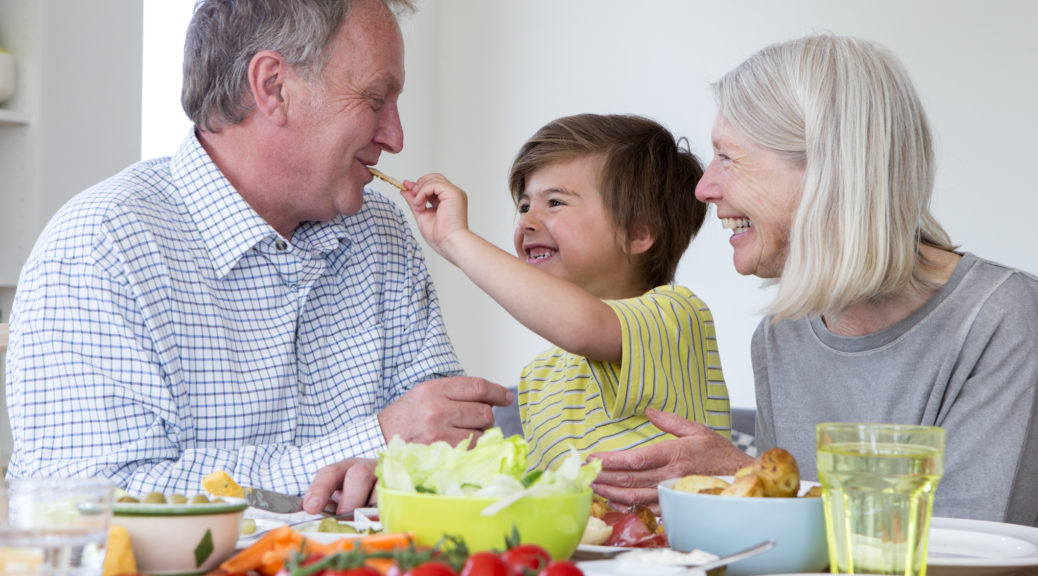Kinship Placement for Children in Foster Care | How Does It Work?

The Importance of Keeping Children with Relatives or Non-related Caregivers
Children and teens can enter foster care for a number of reasons. When this happens, government and child welfare agencies work together to find the safest and best home for them. A relative, such as a grandparent, or someone the child already knows is always the first option agencies seek out since children deserve to be be in the least restrictive environment with people they are familiar with.
If relatives aren’t available when a child enters foster care, social workers will reach out to teachers, neighbors, family friends – someone who the child knows and is comfortable with. Studies show that kinship caregivers are frequently able to care for these youth during times of struggle. This is also helpful in alleviating the amount of trauma youth go through after being separated from their parents.
Click here to learn how you can become a kinship provider or foster parent to a youth in need.
How Does the Process Work?
In Kansas, when a court decides that a child should not remain in the parents’ home, a KVC Case Worker makes a referral for kinship placement. Following this, a Kinship Care Coordinator contacts all relatives or acquaintances and sets up interviews. The interviews take place in the potential caregiver’s home and consists of a series of questions and some paperwork to be completed. Helpful resources are then given for reference, as well as basic first-aid information.
The caregiver must then pass a background check, a home inspection and complete all the requirements given by the Kinship Coordinator.
Even if you’re not a blood relative, you can still care for a child. The goal is to provide the best care for children in foster care so the will have life-long health. Click here to learn more.
What Support Do Kinship Caregivers Receive?
Kinship caregivers sometimes receive monthly financial assistance towards the cost of providing care for the child. KVC provides information on support group meetings, which have shown to be very effective. Read an example here. KVC supplies resources to help with the child’s medical, educational and emotional needs. Also, kinship caregivers are eligible for daycare assistance and receive support from KVC staff who are on-call 24/7.
Have questions on kinship placement? Give us a call at (913) 499-8100.
Check Out These Heartwarming Kinship Stories From Our Team!
My Childhood Led Me to Advocate for Youth in Foster Care
– Stephanie Everman, KVC Kansas Kinship Care Specialist
When I was three years old, I was placed in the care of my maternal aunt, uncle and two older brothers who had already been residing with my aunt for a year or so. My parents had four children in their early twenties and faced many financial hurdles. Over time, my mom suffered from substance use which led to me being placed in foster care.
In my role as a Kinship Care Specialist with KVC, my mission is to give children a voice and show them how they can be in the ones in the “driver’s seat” of their lives. Everyone deserves connection, and helping children facing a time of hurt and loneliness can be hard. But with connections through family and friends, these children can feel a sense of belonging and learn to love themselves!
Kinship Care Is Life-Changing for Youth In Foster Care
– Chrystal Onyoyo, KVC Kansas Kinship Care Specialist
In 2014, I became a part of the Kinship Care Team at KVC. The amount of knowledge that I have gained in this role is immeasurable, and I absolutely love the way that Kinship has grown. I feel that it is so vital to the success of the children and the families that we serve. Also, I’m very thankful for the work that KVC Kansas leadership has done to showcase the need for kinship placements. Our leadership makes sure we use evidence-based practices, tactics that are tested and have proven to change the lives of children and families for the better.
Providing familial connections for children in foster care is truly life changing. We may have a child who entered foster care at a young age and didn’t know much about their biological family. Our Kinship team is able to connect them with their blood relatives and help them make lasting connections. Can you imagine how powerful that can be, just to know that there is someone out there, connected to you, potentially by blood, that wants to be a part of your life? I have been able to provide family information to kids who had no idea of their relatives. Now they have someone to call when they are having a rough day, or someone to call when they are having a great day.
Now, more than ever with fewer available foster homes, the KVC Kinship teams are working even harder to make familial connections and placements. KVC Kinship workers are truly working so hard and going above and beyond for our youth to place them with relatives.
I love what Kinship does, what it stands for, and love knowing that I am actually making a difference!
Addition information:

